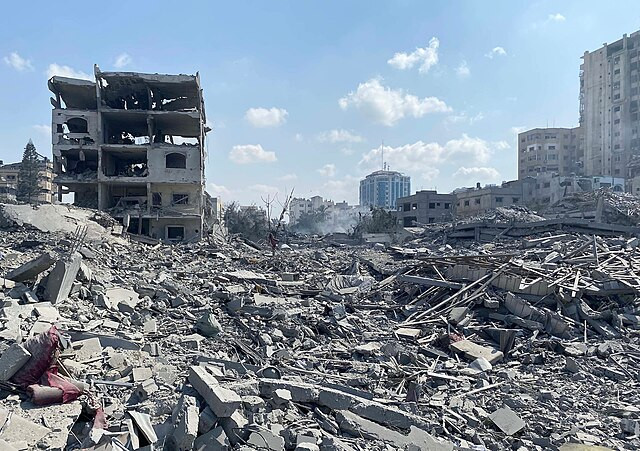Israel's decision to block humanitarian aid from entering Gaza has sparked widespread condemnation from international organizations and mediators, who accused the country of leveraging starvation as a negotiation tactic. The move, announced on Sunday, came after Hamas rejected a newly proposed ceasefire framework that would have extended the truce through Ramadan and Passover without committing to a permanent cessation of hostilities.
The ceasefire, which began on January 19, saw a significant increase in aid flow into Gaza after months of extreme shortages. However, with the agreement's first phase now expired and talks on the next phase stalled, Israel halted all incoming food and supplies, warning of "additional consequences" should Hamas refuse to accept the latest proposal.
"In light of Hamas' refusal to accept the (U.S. envoy Steve) Witkoff framework for continuing the talks-which Israel had agreed to-Prime Minister Netanyahu has decided that as of this morning, all entry of goods and supplies into the Gaza Strip will be stopped," Netanyahu's office stated. The government also reaffirmed that no ceasefire extension would be granted without the release of remaining hostages.
The decision drew immediate rebuke from mediators Egypt and Qatar, as well as U.N. officials and humanitarian organizations. U.N. humanitarian chief Tom Fletcher called the move "alarming," stressing that under international law, Israel must allow aid access. Qatar's Foreign Ministry declared that it categorically rejects "the use of food as war weapon and starvation of civilians." Egypt denounced what it described as "the politicization of humanitarian aid and its exploitation as a tool of blackmail."
The blockade also raised tensions within Israel, as families of the remaining hostages urged the government to prioritize their release over military strategy. "Postponing the negotiation on the deal for everyone's (release) can't happen," said Lishay Miran-Lavi, the wife of hostage Omri Miran.
The ceasefire agreement was initially structured to unfold in three phases, with the first phase facilitating the exchange of prisoners and hostages, as well as increased humanitarian aid. The second phase, which was set to begin last week, was intended to include the full withdrawal of Israeli forces from Gaza and the release of all surviving hostages in exchange for additional Palestinian prisoners. However, negotiations have stalled, and no official talks on phase two have begun.
Hamas has accused Israel of "ongoing manipulation" and "evading the agreement" by proposing an extension of the first phase rather than engaging in discussions on a permanent ceasefire. The only way to return the hostages is "is to adhere to the agreement, immediately enter into negotiations to start the second stage, and the occupation's commitment to implement its pledges," Hamas said in a statement.
Washington has publicly supported Israel's position, with White House National Security Council spokesman Brian Hughes stating, "We will support their decision on next steps given Hamas has indicated it's no longer interested in a negotiated ceasefire." However, there has been no official confirmation from U.S. officials that the blockade was coordinated with Washington.
Meanwhile, aid groups warn of dire humanitarian consequences if the blockade continues. Gaza's population of more than 2 million remains dependent on external assistance, and the suspension of aid deliveries has already caused a sharp spike in food prices. Médecins Sans Frontières (Doctors Without Borders) criticized Israel for restricting critical supplies, stating that most aid entering Gaza consisted of food and fuel, which "barely scratched the surface" of the population's urgent needs.
Reuters footage on Sunday showed lines of trucks at the Rafah border crossing with Egypt, awaiting permission to enter Gaza. The ongoing crisis has raised fears that the ceasefire could collapse entirely, reigniting hostilities in a conflict that has already killed more than 48,000 Palestinians, according to Gaza's Health Ministry.




